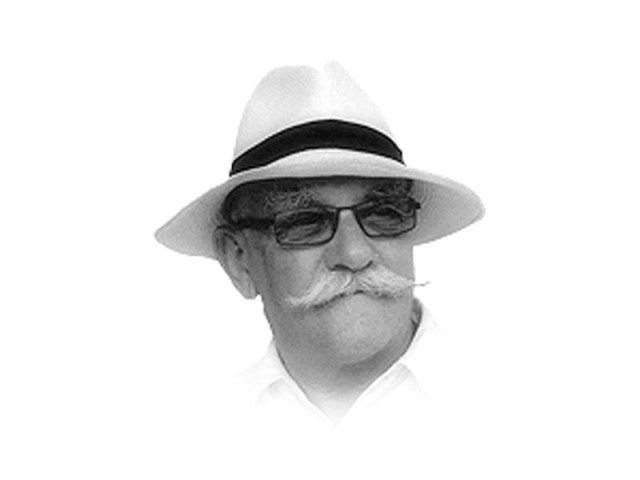A climate of disclosure
In this context ‘disclosure’ means the revealing of something that was hidden or secret

The writer is editorial consultant at The Express Tribune, news junkie, bibliophile, cat lover and occasional cyclist
In this context ‘disclosure’ means the revealing of something that was hidden or secret, often the disclosure being made by a person or group that are victims, frequently of crime or an aberrant social taboo. For disclosure to be made there has to exist an environment, a culture, in which the discloser feels safe to reveal whatever it is they want in the open or acted upon, and that is where so often the problem lies.
Such cultures rarely arise spontaneously and are often the product of activism, confrontation even. In the UK in the early 70s there were low public levels of awareness regarding child abuse. The Maria Colwell case became the catalyst for many things, with Childline being founded in 1986 which gave children direct access to a listening ear and acted as a referral point for social and law-enforcement agencies. Around the same time awareness rose of what used to be called ‘battered women’, eventually giving life to the Chiswick Women’s Aid refuge for victims of domestic violence. It was founded in 1971, the first of its kind in the world, and is the cornerstone of the culture of awareness that exists around the world today regarding violence, particularly against women, within the home.
“It is our special secret…you must never tell anybody or something terrible will happen to you.” A line repeated innumerable times in the course of a child disclosing sexual abuse. Child sexual abuse, the deepest and darkest taboo, has been slow to grow a culture of disclosure and professional responses are still piecemeal and often disclosure and the law do not work in synchronicity. Victims not uncommonly find themselves doubly victimised as they struggle, often for years, for justice. Lesser known is an awareness of elder abuse and even more poorly resourced or understood. But it is there, another of those grim realities that we would rather not hear or talk about, never acknowledge…and the elders suffer usually in miserable silence there being nobody left to care about them.
And so to sexual harassment. Again visiting my early professional life it is no exaggeration to say that it truly was a different world. We used sexist idioms casually around the office; some of the older men often and openly touched women inappropriately usually on the buttocks. It was their ‘just a bit of fun’ and the women were largely uncomplaining at least publicly. Change came in the mid-70s and was rapid and for all of us that were the newbies, the so-called ‘Seebohm generation’ of social workers it profoundly altered our behaviours, our language and our perspectives. Always for the better. The climate of disclosure became institutionalised through ever-evolving HR practices right across local government, and when I left in the mid-90s women were safer than when I dipped my toe in the social work pond. There was somebody to go to that believed them.
Politics and harassment have long been in the undergrowth, and there is currently circulating among UK politicos and journalists a spreadsheet naming 40 Conservative MPs and giving some unverified and scanty details of misconduct. Not all of the victims are female and there will be some very anxious men in the corridors of Westminster as the British Prime Minister seems to have got a grip. The climate of disclosure, at least in the Mother of Parliaments, is heating up.
Then there is the Weinstein Effect. Hundreds of women have been abused by this monster, with several alleging rape going back years. Other beasts were outed by women that had stayed silent for decades. A Hollywood icon has been bitten by an alleged action from long ago and his career may well be over. Within the entertainment industry the culture was of silence, not disclosure. It is probably the case in many other professions — the law comes to mind — and what of Pakistan?
Recent years have seen a number of cases of child sexual abuse, with the ‘Kasur’ incidents probably the most prominent. The abused children were certainly not aided by a culture that chose to disbelieve them and by the overlying culture of impunity subscribed to by law-enforcement agencies when it comes to ‘influentials’ in the community. The children were not aided either by a media that is poorly trained to handle stories such as this and whose sensationalised presentation did more to harm than protect the victims.
Social work training in Pakistan at degree level does now include modules relating to child sexual abuse, but Punjab remains the only province to have a network of qualified social workers with (some of) the skills need to address the needs of the abused.
As to workplace sexual harassment there are emerging protections. This newspaper for instance has a policy in place regarding harassment and has from the outset and defined how to make an appropriate institutional response — but it is a rarity rather than an industry standard. Outside the workplace it is a free-fire zone for men, and women suffer every minute of every day from salacious comments, touching and now the emergent online possibilities of further ways to abuse. A culture of disclosure? Not yet.
It remains to be seen whether the tsunami of disclosure worldwide translates into a cultural change or whether it will ebb away. My sense is that it will not, and that a climate of disclosure in respect of sexual harassment may finally have got a foothold. Even here. Better late than never.
Published in The Express Tribune, November 2nd, 2017.
Like Opinion & Editorial on Facebook, follow @ETOpEd on Twitter to receive all updates on all our daily pieces.













COMMENTS
Comments are moderated and generally will be posted if they are on-topic and not abusive.
For more information, please see our Comments FAQ